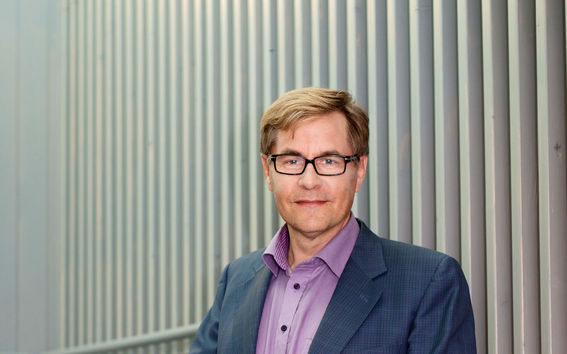Jukka Seppälä appointed Vice Dean for Research at the School of Chemical Engineering

Professor Seppälä has joined the faculty at Aalto in 1986 and is currently the Head of the Department of Chemical and Metallurgical Engineering. The field of his professorship is Polymer technology. Jukka Seppälä is a successful researcher and his merits include among other things positions as an Academy Professor (2011–2015) and the Head of a Center of Excellence (2001–2007) funded by the Academy of Finland. Professor Seppälä has long-term leadership experience as a Department Head at the School of Chemical Engineering.
In recent years, Seppälä has been actively involved in infrastructure development, and is currently Director and PI in the National BIOECONOMY Research Infrastructure. Before his academic career, Seppälä gained valuable experience while working in the chemical industry.
"In the scope of my work as Vice Dean, I want to promote high quality research in the School of Chemical Engineering, where excellent science and technology clusters in key areas for the society have already been formed. Research on bioeconomy and circular economy are good examples of such. Global level projects and consortia as well as strong research infrastuctures will be in a key role. The School of Chemical Engineering will combine excellence in research with high societal impact and industrial relevance.”
As Vice Dean, Jukka Seppälä will be responsible for supporting the Dean in all research related issues and driving their development. He will be a member of the School’s Management Team and the University's Research and Innovation Steering Group.
“I am very happy to get Jukka to this position. Jukka’s profound knowledge in academic research, excellent relationships to the industry and good understanding of the research infras are very valuable for the Vice Dean for Research. I am looking forward to our collaboration and believe that we can together promote research excellence as well as societal impact in our school”, states the Dean Kristiina Kruus.
Read more news

Significant donation to boost pavement engineering research and education
Companies and associations in the field have donated €400,000 to the School of Engineering.
‘Mesoscale’ swimmers could pave way for drug delivery robots inside the body
Researchers have discovered how tiny organisms break the laws of physics to swim faster — such secrets of mesoscale physics and fluid dynamics can offer entirely new pathways for engineering and medicine.
Design strengthens industrial competitiveness – human-centered factory work at the core
Factory work is undergoing a transformation: new technologies and artificial intelligence are changing the content and roles of work. Aalto University’s Department of Design is studying this change from a human-centered perspective in the HiFive project.






